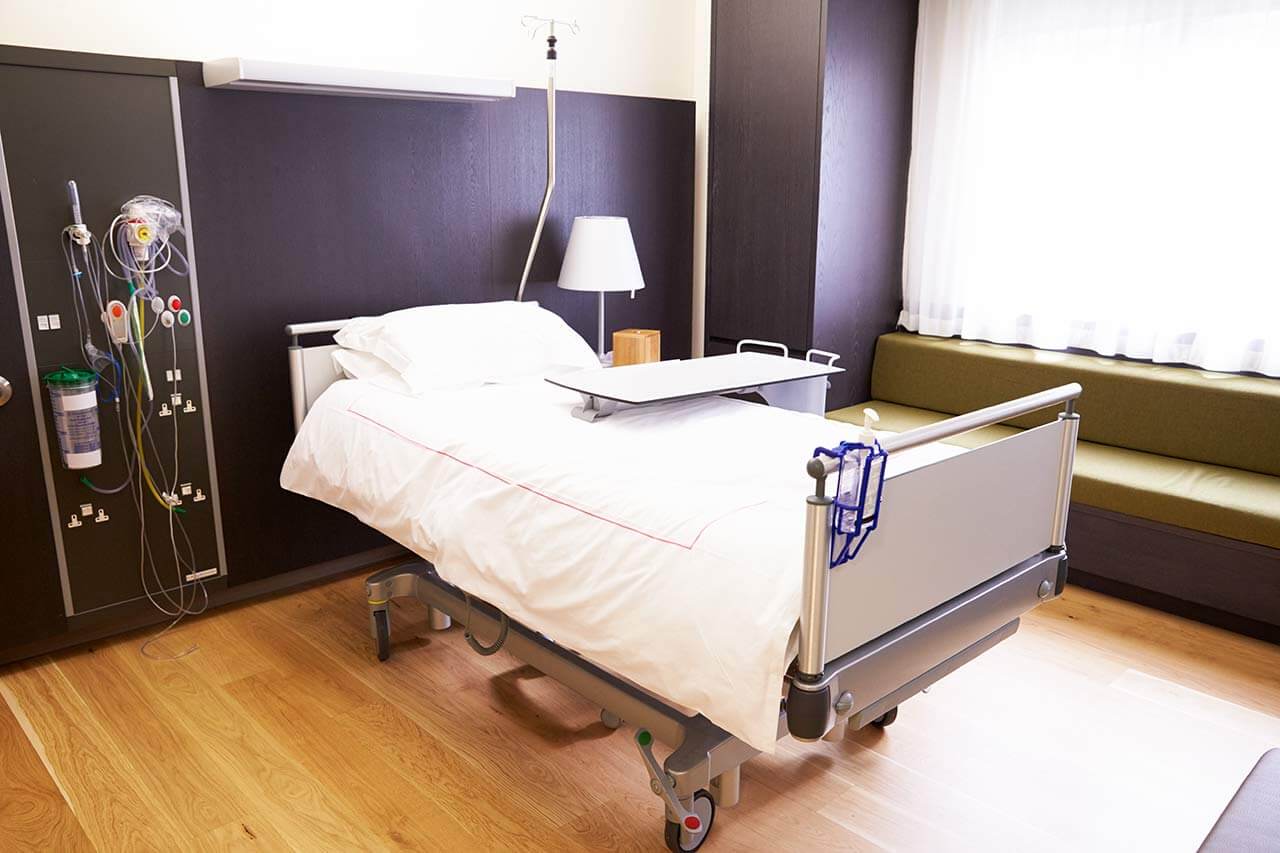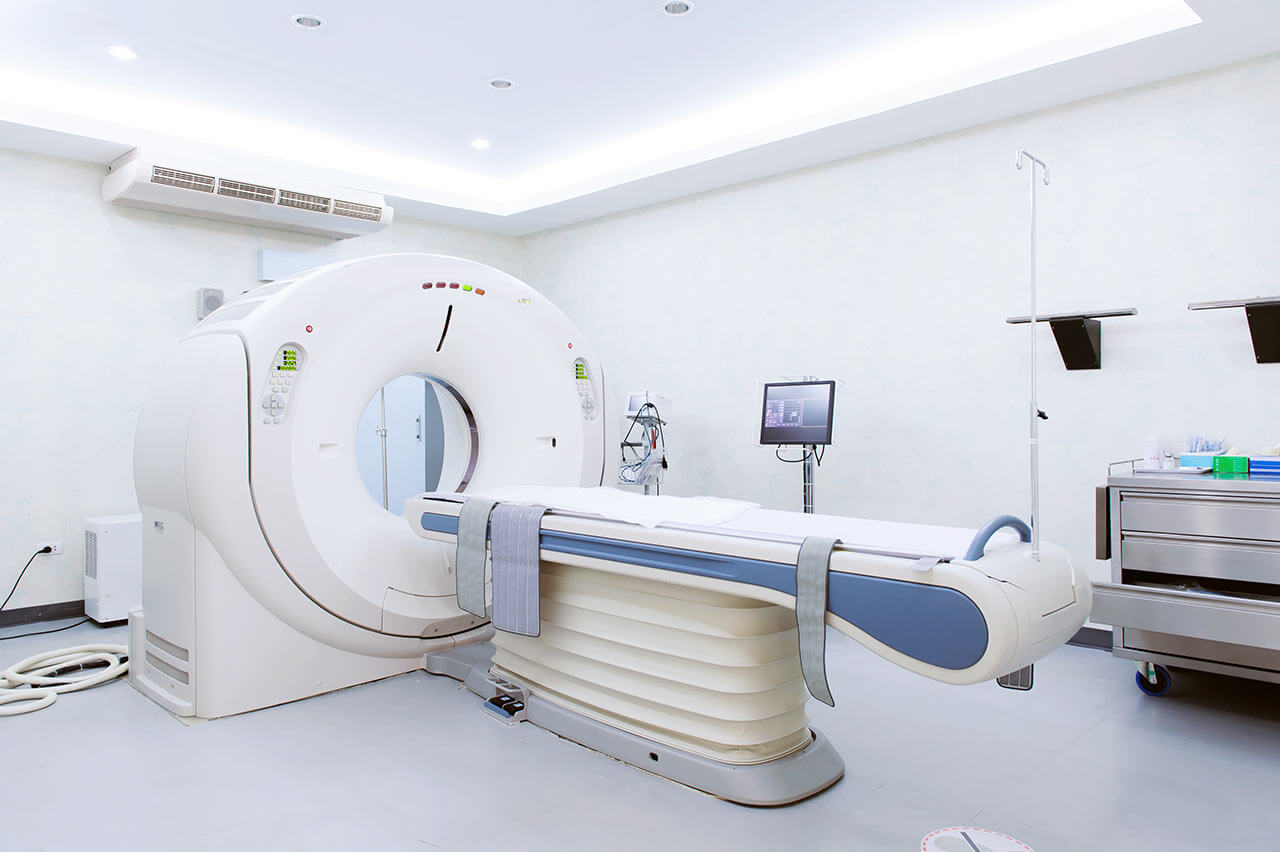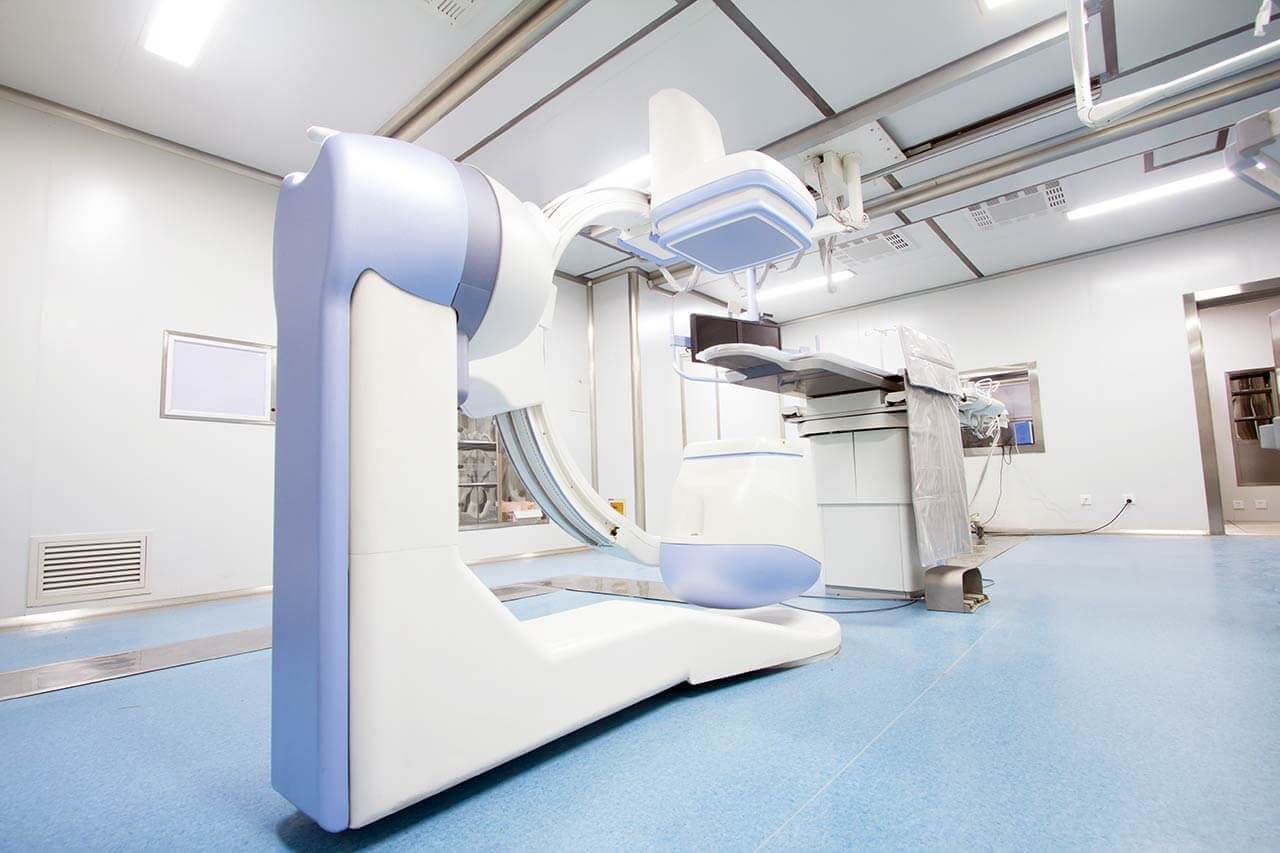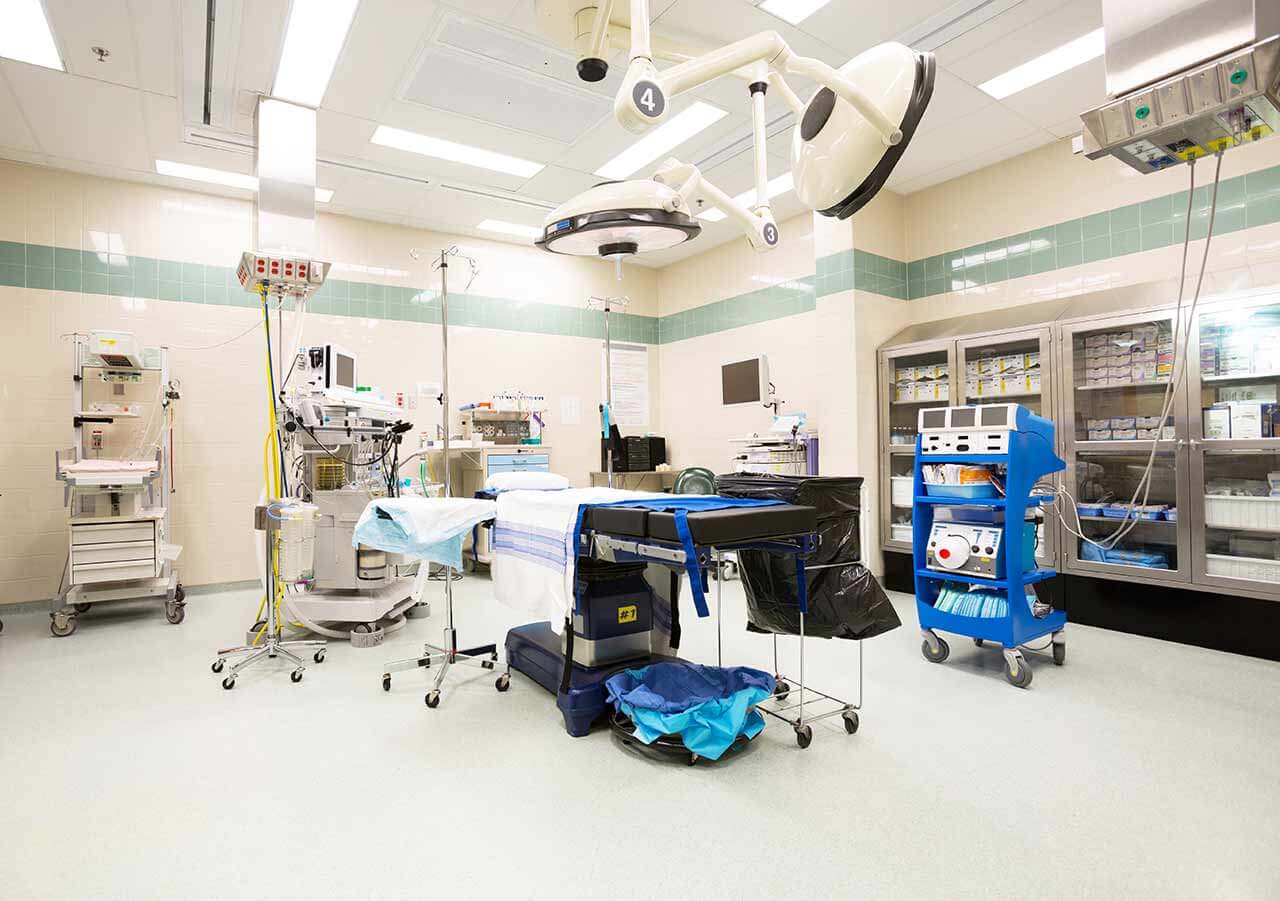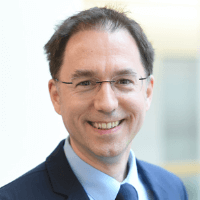
The program includes:
- Initial presentation in the clinic
- clinical history taking
- review of medical records
- physical examination
- laboratory tests:
- complete blood count
- biochemical analysis of blood
- TSH-basal, fT3, fT4
- lipase, amylase
- inflammation indicators (CRP, ESR)
- indicators blood coagulation
- abdominal ultrasound
- gastroscopy with biopsy
- ERCP
- analysis of hp (helicobacter pylori)
- endoscopic ultrasound
- CT/MRI abdomen
- symptomatic treatment
- control examinations
- the cost of essential medicines and materials
- nursing services
- nutrition recommendations
- full hospital accommodation
- explanation of future recommendations
Required documents
- Medical records
- Abdominal ultrasound (if available)
Service
You may also book:
 BookingHealth Price from:
BookingHealth Price from:
About the department
The Department of Hepatology and Gastroenterology at the Charite University Hospital Berlin offers all modern methods of diagnosis and treatment of diseases of the liver, biliary tract, pancreas, esophagus, stomach, and intestines. The specialists of the medical facility have impressive experience in the treatment of patients with oncological diseases of the liver and other organs of the digestive system. Treatment of neuroendocrine tumors of the gastrointestinal tract plays an important role here – the department is certified by the European Neuroendocrine Tumor Society (ENETS) as a Center of Excellence in this field. The department offers all modern methods of conservative treatment for chronic inflammatory bowel disease such as Crohn's disease and ulcerative colitis. A special focus of the clinical work of the team of gastroenterologists and hepatologists is on endoscopic diagnostic and therapeutic procedures. To this end, the department operates one of the largest endoscopy units in Germany with the latest generation of equipment. It also has modern facilities for functional diagnostics, ultrasound diagnostic rooms, and in-house high-tech laboratories. An important part of the department's clinical practice is the collaboration with physicians from related medical disciplines, such as abdominal surgeons, radiologists, and nuclear medicine specialists. The department positions itself as a maximum care medical facility whose primary mission is to provide high-quality personalized treatment using the very latest scientific achievements and current medical standards. The Head Physician of the department is Prof. Dr. med. Frank Tacke.
One of the main focuses of the department is the treatment of oncological diseases of the gastrointestinal tract and liver. Special attention is paid to the prevention, diagnosis, and treatment of colorectal cancer, the third most common cancer in the world. The department implements a comprehensive screening program for colon cancer, which allows oncopathology to be detected at an early stage, when there is a high chance of complete recovery. Treatment of colorectal cancer is individualized: gastroenterologists, oncologists, surgeons, and radiologists meet weekly in a tumor board and review clinical cases. In the early stages of the oncological process, endoscopic removal of the malignant neoplasm is most often performed. If colorectal cancer is diagnosed at an advanced stage, treatment is usually surgical in combination with chemotherapy, radiotherapy, and other types of therapy. The department's gastroenterologists are also skilled in performing palliative procedures to relieve pain and improve the patient's quality of life, such as endoscopic stenting and bile duct drainage, laser ablation, and drug-based pain management.
The department has the status of a Centre of Excellence for Neuroendocrine Tumors. In November 2009, the medical facility became the first in Europe to be certified by the European Neuroendocrine Tumor Society (ENETS). Patients with neuroendocrine tumors receive multidisciplinary care with the participation of gastroenterologists, surgeons, oncologists, as well as radiology and nuclear medicine experts. The therapeutic process begins with a comprehensive evaluation, which may include gastroscopy, colonoscopy, endosonography, push enteroscopy, capsule endoscopy, CT and/or MRI with or without contrast enhancement, In-111 octreotide scintigraphy, 68Ga-DOTATATE positron emission tomography (if necessary, in combination with CT scan), 18-FDG PET/CT, cardiac ultrasound and ECG, and other studies depending on the specific clinical situation. During the tumor board, physicians study the diagnostic data and develop an optimal treatment plan for the patient. The medical facility offers all modern types of therapy with proven effectiveness: somatostatin analogue therapy, all types of advanced chemotherapy regimens, local treatment procedures (transarterial embolization and chemoembolization, radiofrequency ablation), peptide receptor radionuclide therapy with somatostatin analogues, selective intra-arterial radiation therapy (SIRT), and other treatment procedures.
The treatment of Crohn's disease and ulcerative colitis, which are chronic inflammatory bowel diseases, also plays an important role in the daily clinical practice of the gastroenterology team. For patients with this diagnosis, comprehensive interdisciplinary care is critical. Therefore, rheumatologists, surgeons, dermatologists, nutritionists, radiologists, and other specialists are involved in the therapeutic process. The diagnostic phase includes abdominal ultrasound, rectal endosonography, gastroscopy, colonoscopy, duodenoscopy, colon chromoendoscopy, capsule endoscopy, double balloon enteroscopy, endoscopic retrograde cholangiopancreatography (in case of suspected primary sclerosing cholangitis), and extended functional diagnostics. The optimal set of diagnostic procedures for the patient is determined by the attending physician based on the patient's complaints, symptoms, and medical history. Treatment of inflammatory bowel disease is based on drug therapy with anti-inflammatory drugs, corticosteroids, immunosuppressants, biological drugs, and other groups of medications. In case of a complex course of pathology, the patient may be prescribed endoscopic treatment or surgery.
The department also provides qualified medical care to patients with hepatological diseases. Of particular interest is the treatment of hepatitis B and C, autoimmune liver diseases, fatty liver disease (hepatic steatosis), and malignant and benign liver tumors. Patients with liver cancer are treated in a specialized center that is part of the Charite Comprehensive Cancer Center, one of the largest and most advanced of its kind in the international medical arena. The clinical responsibilities of the hepatologists in the department also include the care of patients before and after liver transplantation.
The department specializes in the following:
- Gastroenterology
- Diagnostics and treatment of malignant diseases of the gastrointestinal tract
- Diagnostics and treatment of colon cancer
- Diagnostics and treatment of stomach cancer
- Diagnostics and treatment of esophageal cancer
- Diagnostics and treatment of pancreatic cancer
- Diagnostics and treatment of neuroendocrine tumors of the gastrointestinal tract
- Diagnostics and treatment of benign diseases of the gastrointestinal tract
- Diagnostics and treatment of chronic inflammatory bowel disease: Crohn's disease and ulcerative colitis
- Diagnostics and treatment of infectious and autoimmune stomach diseases
- Diagnostics and treatment of infectious and autoimmune pancreatic diseases
- Diagnostics and treatment of acute and chronic esophageal diseases
- Diagnostics and treatment of inflammatory bowel disease: microscopic colitis, eosinophilic colitis, and intestinal amyloidosis
- Diagnostics and treatment of short bowel syndrome
- Diagnostics and treatment of intestinal obstruction
- Diagnostics and treatment of autoimmune pancreatitis
- Diagnostics and treatment of malignant diseases of the gastrointestinal tract
- Hepatology
- Diagnostics and treatment of malignant liver diseases
- Diagnostics and treatment of liver cancer, with key focus on hepatocellular carcinoma
- Diagnostics and treatment of liver metastases of any origin
- Diagnostics and treatment of benign liver diseases
- Diagnostics and treatment of viral hepatitis B, C, and D
- Diagnostics and treatment of autoimmune liver diseases: autoimmune hepatitis, primary biliary cholangitis, and primary sclerosing cholangitis
- Diagnostics and treatment of fatty liver disease (hepatic steatosis)
- Diagnostics and treatment of benign liver tumors
- Diagnostics and treatment of rare hepatological diseases: hemochromatosis, alpha-1-antitrypsin deficiency, porphyria, and Wilson's disease
- Diagnostics and treatment of acute liver failure
- Diagnostics and treatment of malignant liver diseases
- Other medical services
The department offers the following endoscopic treatments:
- Endoscopic treatment of esophageal, stomach, and duodenal diseases
- Treatment of esophageal varices with ligation, sclerotherapy, and histoacryl injections
- Treatment of upper gastrointestinal tract stenosis with balloon dilation, bougienage, and stenting
- Treatment of Barrett's esophagus with submucosal resection, radiofrequency ablation, or hybrid argon plasma coagulation
- Botulinum toxin injections for gastrointestinal motility disorders
- Endoscopic treatment of achalasia cardia
- Treatment of vascular malformations with argon plasma coagulation
- Endoscopic hemostasis for acute and chronic bleeding
- Percutaneous endoscopic gastrostomy
- Treatment of precancerous lesions and malignancies with endoscopic mucosal resection, endoscopic submucosal dissection, and full-thickness resection (FTRD)
- Endoscopic vacuum therapy
- Endoscopic treatment of Zenker's diverticulum
- Endoscopic sleeve gastroplasty (in collaboration with surgeons)
- Endoscopic treatment of large bowel diseases
- Endoscopic polyp removal
- Endoscopic mucosal resection, endoscopic submucosal dissection, and full-thickness resection (FTRD)
- Treatment of vascular malformations with argon plasma coagulation
- Endoscopic hemostasis for acute and chronic bleeding
- Treatment of lower gastrointestinal tract stenosis with balloon dilation, bougienage, and stenting
- Endoscopic vacuum therapy
- Endoscopic treatment of hemorrhoids
- Endoscopic treatment of small bowel diseases
- Balloon endoscopy with single and double balloon system
- Endoscopic treatment of biliary tract and pancreatic diseases
- Endoscopic retrograde cholangiopancreatography, percutaneous transhepatic cholangiodrainage
- Cholangioscopy
- Endoscopic removal of papillary adenomas
- Removal of bile duct and pancreatic duct stones with laser lithotripsy and electrohydraulic lithotripsy
- Treatment of stenosis with the implantation of plastic or metal stents and balloon dilation
- Other endoscopic treatments for gastrointestinal diseases
Curriculum vitae
Higher Education and Professional Career
- 1994 - 2001 Medical studies, Hannover Medical School.
- 1998 - 1999 Scholar of the German Academic Exchange Service, University of Texas MD Anderson Cancer Center, Houston, USA.
- 2001 - 2004 Internship, Department of Gastroenterology, Hepatology and Endocrinology at the Hannover Medical School.
- 2002 Doctorate, Department of Hematology and Oncology, Hannover Medical School.
- 2001 - 2004 PhD Training, Molecular Medicine, Hannover Medical School.
- 2004 PhD, Department of Gastroenterology and Hepatology, Hannover Medical School.
- 2004 - 2006 Scholarship of the German Research Foundation, Mount Sinai School of Medicine, New York, USA.
- 2006 - 2019 Senior Physician, Department of Internal Medicine III, University Hospital RWTH Aachen.
- 2008 - 2019 Managing Senior Physician, Department of Internal Medicine III, University Hospital RWTH Aachen.
- 2007 Habilitation in Experimental Internal Medicine, Rhine-Westphalian Technical University of Aachen.
- 2012 - 2014 Master of Business Administration in Healthcare, University of Erlangen-Nuremberg.
- 2012 - 2019 W2 Professorship for Hepatology and Gastroenterology, Rhine-Westphalian Technical University of Aachen.
- Since 2019 W3 Professorship for Hepatology and Gastroenterology, Head Physician of the Department of Hepatology and Gastroenterology at the Charite University Hospital Berlin.
Clinical Focuses
- Treatment of liver diseases.
- Treatment of gastrointestinal diseases.
- Intensive care.
- Treatment of hepatobiliary, gastrointestinal, and neuroendocrine tumors.
- Diagnostic and interventional endoscopy.
Research Focuses
- Non-alcoholic fatty liver disease and hepatocellular carcinoma.
- Biology of monocytes and macrophages.
- Gastroenterological and internal intensive care.
Memberships in Professional Societies
- American Association for the Study of Liver Diseases (AASLD)
- German Society of Infectious Diseases (DGI).
- German Society of Internal Medicine (DGIM).
- German Society for Medical Intensive Care Medicine and Emergency Medicine (DGIIN).
- German Society for Digestive and Metabolic Diseases (DGVS)
- German Liver Foundation (Associate Scientist).
- European Academy of Tumor Immunology (EATI).
- European Association for the Study of the Liver (EASL).
- International Liver Transplantation Society (ILTS).
Photo of the doctor: (c) Charité – Universitätsmedizin Berlin
About hospital
According to the reputable Focus magazine, the Charite University Hospital Berlin ranks 1st among the best healthcare facilities in Germany!
The hospital is one of the largest and leading university medical complexes in Europe, and also consistently holds leading positions in the international medical arena. The Charite operates on the basis of the Faculty of Medicine of the Free University of Berlin and the Humboldt University of Berlin. Patients are offered modern diagnostics and treatment with the very latest methods, many of which were developed by professors and scientists of the medical complex. More than half of all German Nobel Prize winners in medicine and physiology, such as Emil von Behring, Robert Koch, and Paul Ehrlich, studied and worked at the Charite University Hospital Berlin. The medical complex includes more than 100 specialized departments and institutes, which helps to ensure that patients receive care in all existing medical specialties. The hospital has exceptional experience in treating complex clinical cases.
Each year, the hospital treats more than 137,800 inpatients and more than 787,700 outpatients. The hospital has a bed capacity of 3,293 beds. A huge medical team consisting of 5,670 scientists and doctors and more than 6,000 nurses work for the benefit of the patients. The main task of all specialists of the medical facility is to restore the patient's health or save his life in critical cases. The hospital has a friendly atmosphere where every patient feels care, respect and empathy.
The Charite University Hospital Berlin is generously funded by the German government, which is why it offers patients the latest generation of excellent equipment and comfortable infrastructure. The Charite medical complex is equipped with da Vinci robotic surgery systems, laser technologies, equipment for endovascular catheter-based interventions, neuronavigation devices, intraoperative monitoring systems, equipment for proton therapy available only in the most advanced medical centers in the world, and many other technologies. All these resources, combined with the experience and professional skills of the hospital's doctors, are the key to providing the most effective and safe treatment in accordance with the highest international medical standards.
The hospital is recognized with a huge number of quality certificates, including DIN EN ISO 9001:2015, certificates from the German Cancer Society (DKG), the German Society for General and Visceral Surgery (DGAV), the German Society for Thoracic Surgery (DGT), the German Hernia Society (DHG), and the ERAS Society.
The Charite University Hospital Berlin is a benchmark in the European healthcare system. Patients therefore receive impeccable medical service, quality care, and personalized service that puts the patient and their individual needs first.
Photo: (с) depositphotos
Accommodation in hospital
Patients rooms
The patients of the Charite University Hospital Berlin live in comfortable rooms made of modern design. Each room is equipped with an ensuite bathroom with a toilet and a shower. The standard room furnishing includes an automatically adjustable bed, a bedside table, a wardrobe for storing clothes, a table and chairs for receiving visitors, and a TV. If desired, Wi-Fi access can be provided. The hospital also offers enhanced-comfort rooms.
Meals and Menus
The patient and his accompanying person have a daily choice of three menus. If for any reason, you do not like the food, you will be offered an individual menu. Please inform the medical staff about your dietary preferences before the treatment.
Further details
Standard rooms include:
Religion
Religious services are available upon request.
Accompanying person
During the inpatient program, an accompanying person may stay with you in a patient room or at the hotel of your choice.
Hotel
During the outpatient program, you can live at a hotel of your choice. Managers will help you to choose the most suitable options.
The hospital offers a full range of laboratory tests (general, hormonal, tests for infections, antibodies, tumor markers, etc.), genetic tests, various modifications of ultrasound scans, CT scans, MRI and PET / CT, angiography, myelography, biopsy and other examinations. Treatment with medications, endoscopic and robotic operations, stereotaxic interventions is carried out here, modern types of radiation therapy are also used. The hospital offers patients all the necessary therapeutic techniques.
- Proton therapy
- CyberKnife treatment
- Hyperthermic intraperitoneal chemotherapy (HIPEC)
- PSMA therapy with Lutetium-177
- Joint replacement in adults and children
These are oncological diseases, benign neoplasms of the brain and spinal cord, heart valve defects, diabetes mellitus and its complications, joint diseases and other pathologies.
- Neurosurgery
- Oncology
- Plastic and reconstructive surgery
- Interventional radiology
- Proton therapy (Proton Therapy Center BerlinProtonen)
The medical team includes more than 4,225 highly qualified scientists and doctors.
